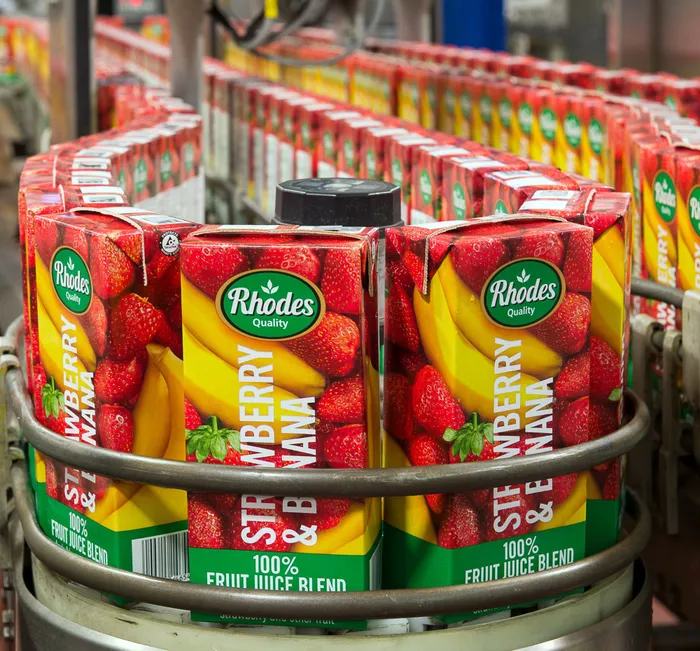RFG posts robust interim profit despite consumers under pressure, energy woes

RFG Holdings, which owns brands such as Rhodes, Bull Brand, Magpie, Squish, Bisto, Hinds and Pakco, said yesterday that its interim profits increased, boosted by the fruit juice. Picture: Supplied
RFG Holdings, which owns brands such as Rhodes, Bull Brand, Magpie, Squish, Bisto, Hinds and Pakco, said yesterday that its interim profits increased, boosted by the fruit juice, despite load shedding continuing to impact production output and costs.
In its results for the six months ended April 2, 2023, the group said profit rose by 36.7% year-on-year to R218 million after group revenue improved by 10.2% to R3.8 billion, driven partly by price inflation of 14.8%.
RFG said growth was driven by price inflation of 14.8% and strong trading performances by both the regional and, in particular, the international business in March.
"Slower consumer spending and a competitive environment resulted in volume pressure in certain product categories, with total group volumes declining by 8.5% and negative mix changes of 0.8% for the six months.
"This was partially offset by foreign exchange gains which contributed 2.7% to revenue growth and acquisitive growth of 2.0% from the Today acquisition," it said.
The pie category delivered a strong recovery, supported by the successful integration and turnaround in the Today business.
Fruit juice, the largest long-life category, was the main driver of revenue growth through market share gains.
"The dry foods and meat categories achieved good revenue growth despite significant price increases during the period," it said.
RFG said in the regional segment, South Africa and the rest of Africa, the primary focus had been on improving the operating margin through an effective balance of price and volume while being conscious of price increases negatively impacting volumes due to the financial pressure facing consumers.
"Negative volume growth is currently being experienced in all major categories in the regional business. However, the rate of volume decline of RFG products was slower than the market in comparable categories over the three months to end-March 2023.
"Revenue in the regional segment increased by 9.5%, with fresh foods revenue increasing by 11.8% and long-life foods by 8.2%. The pie category recovered from the sales and margin pressure in the prior period and delivered a strong all-round performance," it said.
RFG reported that volumes in the canned fruit and vegetable categories remained under pressure from weak consumer demand, sustained cost pressures from high raw material and packaging costs and the competitive environment.
"International revenue grew by 13.2% as the positive impact of strong international selling prices and the benefit of the weakening rand were offset by a 10.4% decline in volumes.
"In the prior period, the group increased production volumes to meet the higher global demand following the failure of the Greek peach crop in 2021. The 14.4% weakening in the rand against the basket of trading currencies contributed R92m to international revenue," it said.
However, RFG said load shedding continued to impact production output and costs.
RFG CEO Pieter Hanekom said the group had invested extensively in back-up generators over the past seven years, and operational management teams had performed well in difficult circumstances to limit the impact of load shedding on factory efficiencies.
He said diesel costs to operate generators totalled R37.8m for the six-month period.
"At the current levels of load shedding, the average weekly diesel cost to operate generators amounts to approximately R2m," he said.
RFG said its renewable energy programme had been accelerated in response to the sustained levels of load shedding currently being experienced in the country.
"Solar installations at a further four production facilities are due for completion in the second half of the financial year and a further three in the 2024 financial year," it said.
Looking ahead, Hanekom said volumes in the regional business were expected to remain under pressure in the second half of the financial year due to the weak consumer spending environment.
"While inflation has started to ease from the heights of the 2022 financial year, the group is still experiencing pressure from high packaging and raw material costs," he said.
By 4pm the share price was 2.94% higher at R8.75 on the JSE.
BUSINESS REPORT